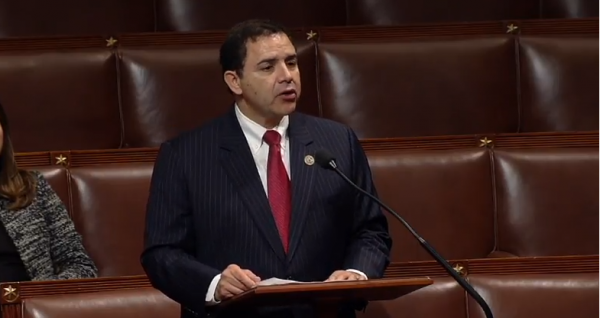
Gun prohibitionists are having fits in the wake of House passage of H.R. 38, the Concealed Carry Reciprocity Act, on a nearly-partisan 231-198 vote Wednesday, exemplified by the hysteria-laden email blast from anti-gun billionaire Michael Bloomberg’s Everytown for Gun Safety that declared the bill will “gut state gun laws and allow many people with dangerous histories and no training to carry hidden, loaded handguns across the country.”
The Rochester, New York Democrat and Chronicle complained in an editorial that “lawmakers are working to expand, not tighten, gun rights.” That’s actually a good thing, according to Second Amendment activists who worked hard to get the bill passed.
“For decades,” observed Alan Gottlieb, chairman of the Citizens Committee for the Right to Keep and Bear Arms, “the gun prohibition crowd has argued that gun owners should be licensed, same as drivers. Well, millions of them are licensed, and they should be afforded the same courtesy as automobile drivers who travel from state to state. After all, there is no constitutional right to drive a car, but there is a constitutionally-protected right to bear arms, and officials in those states need to recognize that.”
But it was not a hard party line split, as 14 Republicans voted against the measure for a variety of reasons, not the least of which was combining reciprocity with the “Fix NICS” legislation. Six Democrats, led by Texas Congressman Henry Cuellar, jumped ship and joined Republicans to put the measure over the top, infuriating the gun prohibition lobby, which considers Democrats in its pocket.
Cuellar, who represents Texas’ 28th District, was one of the original co-sponsors of H.R. 38, signing on back on Jan. 3 when the legislation was introduced. First elected in 2004 and taking office in January 2005, Cuellar passionately urged his colleagues to support the reciprocity bill.
He was joined by fellow Texan Vicente Gonzalez (D-15th District), a freshman representative who took office in January.
The four other Democrats who supported reciprocity were:
Oregon’s Kurt Schrader, whose 5th District encompasses the state capitol in Salem, a region outsiders might believe is overrun with looney leftists whose votes turn the state politically blue. He has been in Congress since 2009;
Sanford Bishop, representing Georgia’s 2nd District, who took office for the first time in January 1993, so he’s been on Capitol Hill long enough to hear all the anti-gun rhetoric one possibly could endure;
Collin Peterson, who is the longest-serving congressman in the bunch, having taken office in January 1991. He represents Minnesota’s 7th District;
Wisconsin’s Ron Kind, from that state’s 3rd District. He’s been in office since January 1997, so he celebrated two decades on Capitol Hill by looking beyond the rhetoric.
Some might suggest all these Democrats took a “safe” vote, figuring that reciprocity will die in the Senate. Most of the time, that might be a reasonable presumption, but these are not normal times. Democrats seem to be eating their own and Republicans have thrown their weight behind the election of Roy Moore to fill a Senate seat from Alabama. Capitol Hill appears a bit chaotic.
There may be no better time for gun rights activists to gain back some of the political real estate they’ve lost over the past five decades. The challenge ahead was summed up by CCRKBA’s Gottlieb:
“Now the battle moves to the Senate. We’re encouraging American gun owners and especially the millions of citizens who have licenses or permits to carry, to contact their senators about this important legislation. The gun prohibition lobby is pulling out all the stops to defeat this legislation, and Second Amendment activists need to fight back.”
It would be a sweet victory for gun rights activists who have been working for decades to reverse Second Amendment erosion if national reciprocity becomes law in 2018. Next year is the 50th anniversary of the Gun Control Act of 1968.